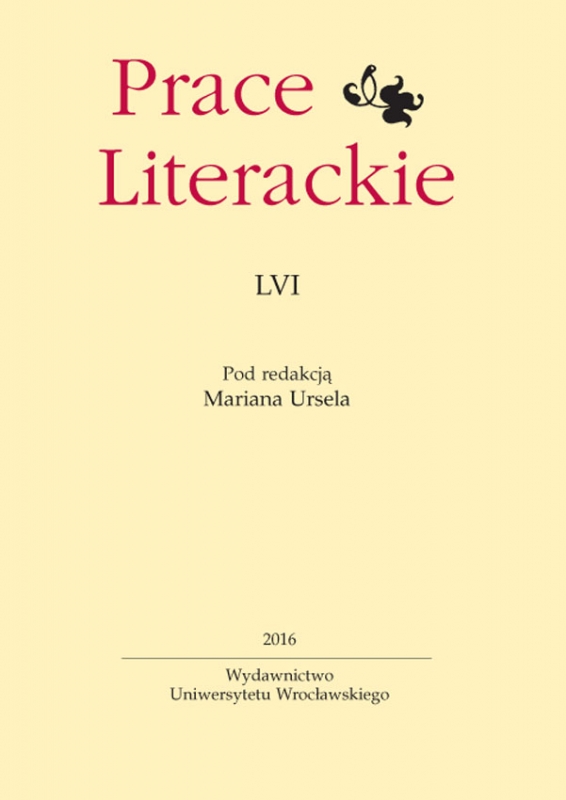

Artykuły

Literary visions of Princess Izabela Czartoryska’s garden as exemplified by the semantics of feelings — Romantic perception of a wandering poet
In the article the author attempts to capture the first signs of the Romantic turn, using as her example the semantics of feelings of a poet in a garden. She analyses fragments of poems describing Princess Izabela Czartoryska’s park, including Puławy by Julian Ursyn Niemcewicz and Erinnerungen an Pulawy by Eugen von Gutschmidt. She points to those signs of the Enlightenment-Romanticism turn that were associated with poetic perception and emerged as a result of observations of nature during lonely wanderings. In addition, the author focuses on the role of the wanderer, who not only sees nature through the senses receiving external stimuli, but who also makes the surrounding reality the object of his observations. She tries to demonstrate that on the threshold of Romanticism the poet pays attention to the movement, light, sound and colours of the garden scenery surrounding him. In her view the poets praising the Puławy gardens recognised the nature of the layout and Czartoryska’s concept according to which certain meanings and associations were to be read on the basis of the symbolism of the garden word. The Puławy gardens seen through the eyes of strollers appeared as a series of signs and components that were to be decoded and interpreted. The author concludes that the oeuvre of poets from the Puławy circle gave rise to changes in the thinking about and interpreting of the surrounding reality and that the whole cycle of transformations is also a result of psychological processes occurring in the wanderer’s mind. Their interpretation makes it possible to say that an attempt to capture the signs of the new era is a long-term processes. The changes were not rapid; they resulted not only from observations of nature but also from the loss of national independence.